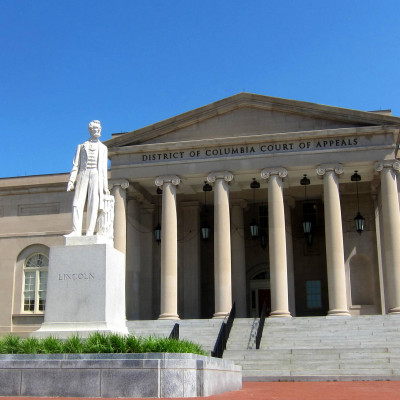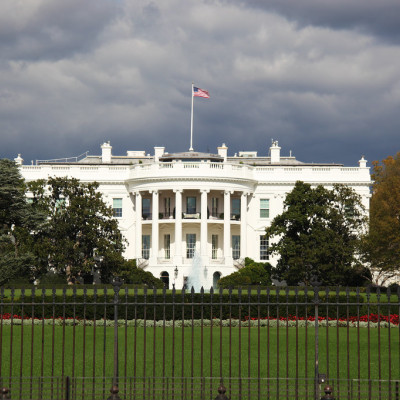August 31, 2020
August 2020 at Policy Integrity
- Policy Victories: Fuel-Economy Penalties, Oil and Gas Leasing Reversal
- Litigation Updates: Nutrition Assistance Benefits, Healthcare Conscience Rule & More
- Upcoming Events: Climate and Public Health (9/22), Corporate Climate Risk (10/2)
- Regulatory Strategy in a Hyper-Partisan Era: New Report
- Accounting for Climate Risk in Retirement Investing
- Emissions-Reduction Strategies: FERC and Carbon Pricing, Transportation in New Jersey
- Revesz’s Commentary on Deregulation, Agency Structure
- More From This Month
-

Policy Victories: Fuel-Economy Penalties, Oil and Gas Leasing Reversal
This week, a federal court struck down a Trump administration rule that reduced the penalties automakers pay for violating fuel-economy standards. The decision echoed some of the arguments we made in our amicus brief in the case, as well as our prior comments on the rule. As our analysis revealed, reducing the penalties would have led to hundreds of billions of dollars in extra consumer fuel costs and climate damages.
The Bureau of Land Management recently announced its decision to exclude 87,000 acres of public lands from an upcoming lease sale, agreeing with arguments raised by policymakers and environmental advocates that these public lands are too valuable to be designated for fossil fuel extraction. The leases would have allowed oil and gas drilling in Utah’s Moab region, likely harming recreational opportunities, wildlife, and tribal resources. BLM responded to several of our legal and economic arguments opposing the lease sale in its decision.
-

Litigation Updates: Nutrition Assistance Benefits, Healthcare Conscience Rule & More
Nearly 700,000 current beneficiaries would lose eligibility under Trump administration revisions to the Supplemental Nutrition Assistance Program. Our amicus brief in a federal lawsuit challenging the revisions was cited several times in plaintiffs’ reply brief, as support for their argument that the federal government did not adequately consider the widespread social costs of SNAP disenrollment.
The Department of Health and Human Services appealed a ruling that struck down its conscience protections rule, which sought to expand healthcare providers’ rights to deny care on religious or moral grounds. We filed an amicus brief opposing the appeal, focusing on fundamental flaws in HHS’s cost-benefit analysis.
The Environmental Protection Agency finalized a rule that delays the implementation of landfill emissions regulations, resulting in harmful releases of methane gas and subsequent climate damages. Our amicus brief in the D.C. Circuit details how the EPA unreasonably dismissed the rule’s harms.
If constructed, the Tennessee Gas Pipeline extension and related projects would be responsible for substantial greenhouse gas emissions. We filed an amicus brief supporting a challenge to the extension, explaining how FERC failed to quantify emissions and monetize climate damages using the social cost of carbon.
-
Upcoming Events: Climate and Public Health (9/22), Corporate Climate Risk (10/2)
On September 22nd, we are hosting an online conference, co-sponsored by NYU Law’s State Energy & Environmental Impact Center, that will explore Perspectives on Climate Change & Public Health. Experts from around the country will discuss climate-related health risks and some of the barriers working against the full consideration of health impacts in climate and environmental policy. You can find more information and register here.
Our October 2nd online conference, co-hosted by the Volatility and Risk Institute at NYU Stern School of Business, will discuss Corporate Climate Risk: Assessment, Disclosure, and Action. The event will draw together investors, companies, researchers, and regulators to ask what can be done to better incorporate climate-related risks into asset prices. You can find more information and register here.
-

Regulatory Strategy in a Hyper-Partisan Era: New Report
Our latest report discusses how a presidential administration beginning a new term can navigate regulatory strategy, offering advice for White House officials, the Office of Information and Regulatory Affairs, transition teams at agencies, and advocates. It also draws on lessons from President Trump’s first term to detail how an incoming administration can roll back the prior administration’s rules if there is an inter-party transition.
-

Accounting for Climate Risk in Retirement Investing
The Department of Labor recently proposed a rule that would make it more difficult for retirement plan fiduciaries and investors to choose Environmental, Social, and Governance funds. We submitted comments highlighting the proposal’s flaws, together with the Environmental Defense Fund. The Department provides insufficient factual and legal justifications for the proposed rule, and ignores evidence that ESG funds deliver superior market returns and reduce systemic risk.
-

Emissions-Reduction Strategies: FERC and Carbon Pricing, Transportation in New Jersey
Although electricity generation is one of the leading sources of U.S. greenhouse gas emissions, the Federal Energy Regulatory Commission has largely avoided addressing the issue. Bethany Davis Noll and Dr. Burcin Unel’s piece in the Environmental Law Reporter, excerpted from their article in the NYU Environmental Law Journal, provides a comprehensive framework to show that putting a price on carbon emissions falls within FERC’s authority.
New Jersey has set ambitious emissions-reductions goals for its transportation sector, but emergency expenditures and budget constraints could complicate its decarbonization efforts. Matt Butner and Justin Gundlach’s piece in NJ Spotlight discusses how participation in the Transportation and Climate Initiative could help New Jersey deal with its fiscal challenges and significantly reduce transportation emissions.
-
Revesz’s Commentary on Deregulation, Agency Structure
In its efforts to protect industry, the Trump administration has attempted to fundamentally alter the economic analysis of regulation. Richard Revesz’s editorial in the Review of Environmental Economics and Policy details six flawed analytical techniques that have been used to justify deregulatory actions and threaten the health and safety of Americans.
Additionally, Revesz wrote about the Supreme Court’s recent decision in Seila Law v. CFPB. His piece in The Regulatory Review explains how the Court relied on misleading arguments and revisionist history to strike down the CFPB’s structure, ultimately failing to grapple with the complexities of the administrative state. Revesz also co-authored an essay with Timothy Duncheon in a University of Chicago Law Review Online symposium, arguing that the Court’s analysis takes an ex post, static conception of interbranch dynamics.
-
More Comments This Month
We also submitted comments on:

